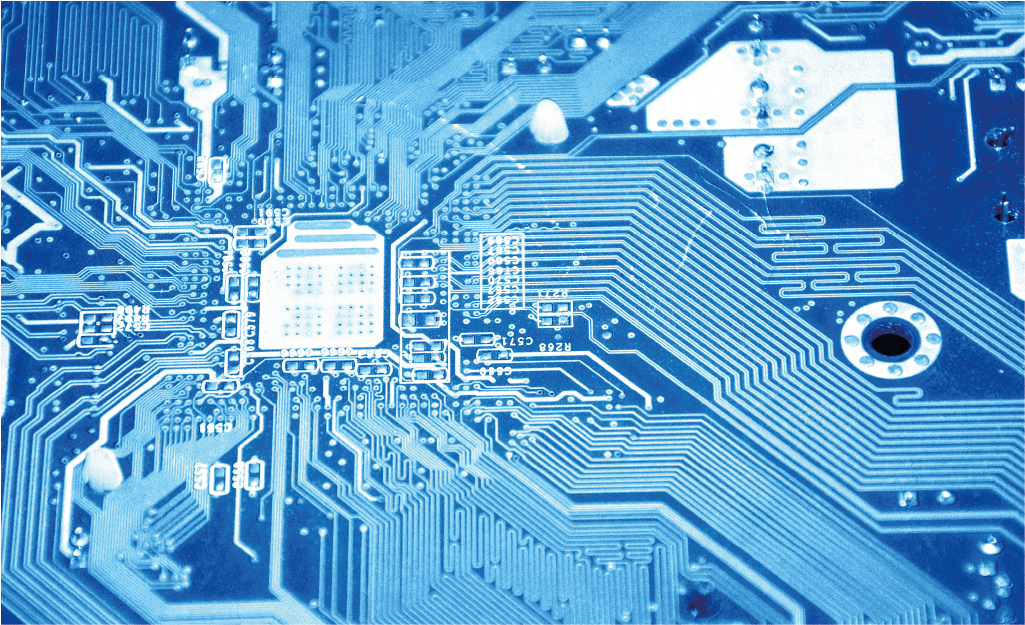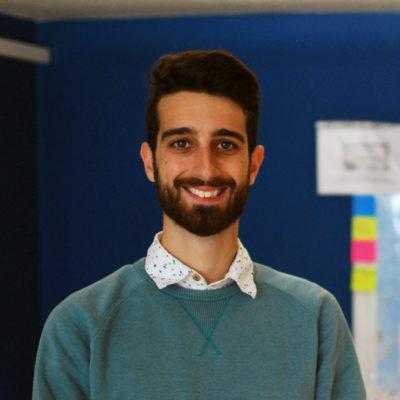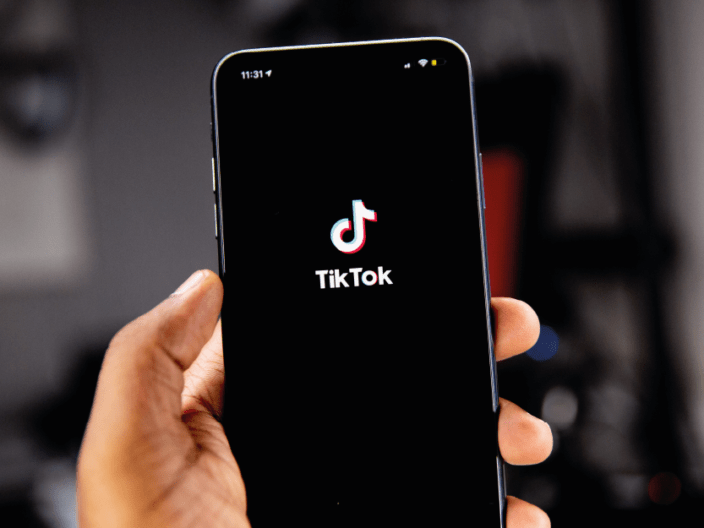Neurotech is the fast growing field at the intersection of neuroscience and technology. The early ripples of its vast array of potential benefits in commercial and healthcare settings have already begun to emerge. From sleep EEG biosensors to BCI robotic arms and brain controlled helicopters, neurotech is beginning to make its presence felt across the board.
Given the immense scope of possibilities, it is no surprise that tech giants such as Facebook and Google are investing heavily in neurotech R&D. On August 29th, Elon Musk, known for his ambitious and pioneering technology projects, presented an update on startup Neuralink’s computer chip which can be inserted into the brain to measure neural activity of its host.
Such exploits, it has been proposed, will eventually allow people to control computers with their minds, cure neurological disorders and achieve ‘superhuman cognition’, as the entrepreneur put it. Beyond media reports and neuroscience and technology aficionados, healthcare professionals (HCPs) discussed Musk’s announcement online. CREATION.co specializes in understanding HCP online interactions, so we tracked the online response to the Neuralink showcase to see if HCPs are declaring healthcare breakthrough or damp squib.
The event gained a lot of attention globally, including 802 Twitter posts from more than 500 HCPs who were eager to share updates throughout the course of the event and the hours that followed.
Perhaps unsure what to think about news, many HCPs reported the events at face value, linked to the Neuralink site or to the YouTube livestream without offering further insight of their own.
However, others immediately saw the potential, looking beyond the initial capabilities of the chip to see long term benefits for the future of healthcare. HCPs joined in the conversation to share their thoughts on how the Neuralink device could solve health challenges and transform the way neurological conditions are treated. Psychologists and psychiatrists showed an interest in how the device could be used to support patients with mental health conditions while surgeons considered the implant in the context of spinal injuries and paralysis.
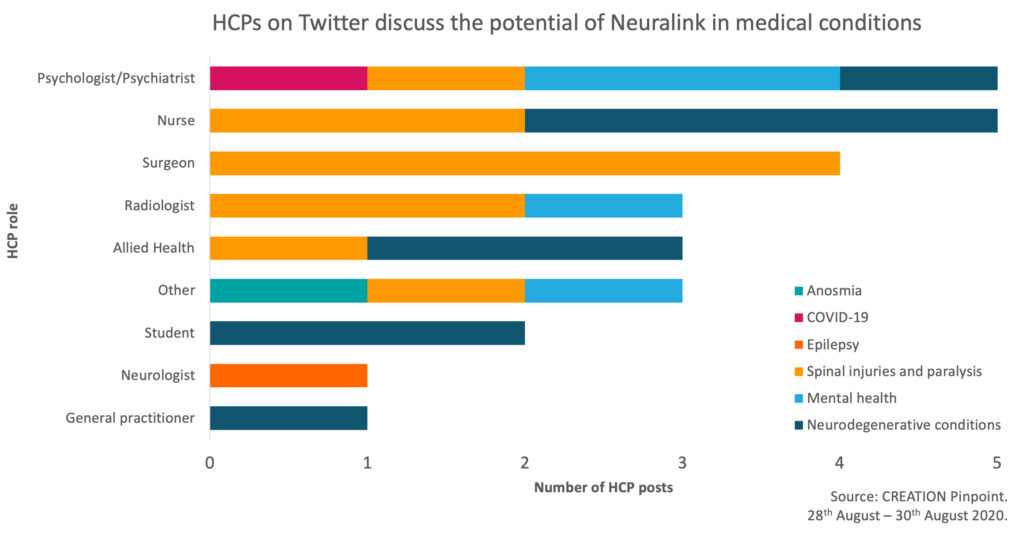
https://twitter.com/JSchreiberMD/status/1299484798298320896
As interest and excitement around the ‘fascinating’ innovation brewed, some HCPs were quick to pour cold water on the idea, warning people not to get caught up in the brain device hype. Sceptics conceded that whilst the engineering is impressive, the science has a long way to go before Neuralink’s dreams become reality.
Before everyone gets too excited about the @elonmusk Neuralink demo here’s what Prof Andrew Jackson, Professor of Neural Interfaces, Newcastle University, says: “this is solid engineering but mediocre neuroscience” pic.twitter.com/R7AlLfX84R
— Rory Cellan-Jones (@ruskin147) August 30, 2020
And some to view proceedings gave less attention to medical possibilities, instead joking about science fiction mind control becoming reality.
i laugh as elon musk beams a meme directly to my frontal cortex via NeuraLink.™ omg epic win. i blink twice to NeuraLike™ it, then think very hard “thank you sir! please send bitcoin.” i open my eyes. it’s suddenly nighttime and i am strangling a union organizer.
— soul nate (@MNateShyamalan) September 2, 2020
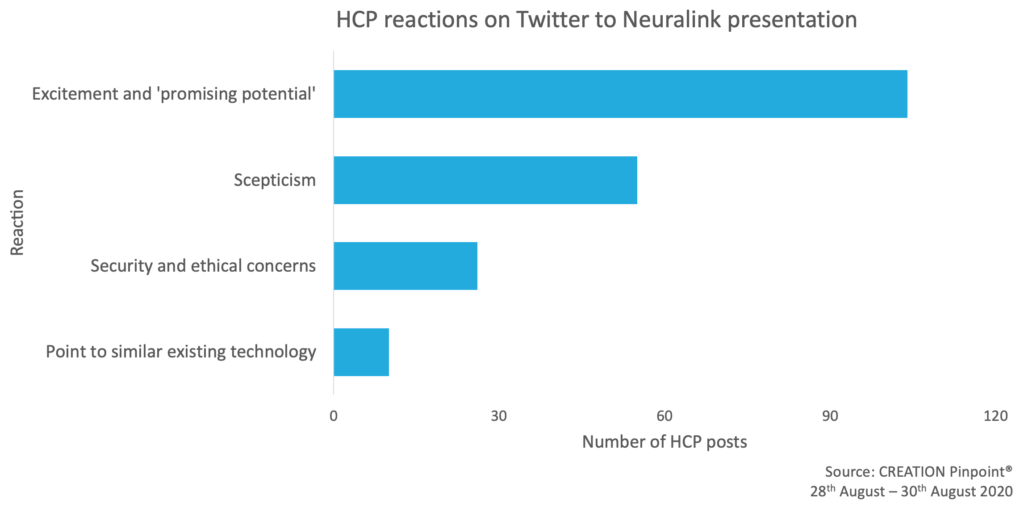
Mixed feelings about this: exited for the scientific progress, which could mean a lot for patients w/ post-traumatic CNS injuries; so scared by all its bioethical implications! @elonmusk @neuralink @Oxf_Neurotrauma @EANSNeurotrauma @WFNSHQ #28Aug2020https://t.co/MERxyjHt4V
— Mario Ganau MD PhD MBA LLM FEBNS FRCS(Ed) FACS (@marioganau) August 30, 2020
However, medical innovation such as brain implants may not be as far off as some think, for those that hailed the breakthrough as something from the future, others shared instances of medical neurotech that is already in existence, and in the case of the cochlear implant, is ready to bring tangible results to patients if the device was more widely accessible.
#Forbes on #cochlearimplants: #elonmusk #Neuralink could make you hear sounds never heard before. With #cochlearimplants life-changing hearing technology already exists, yet isn't being accessed by thousands who could benefit from it. #adulthearing https://t.co/oltkQtJyh0
— Jochen Nicolai (@jnicolai) August 29, 2020
(1/3) Congrats @elonmusk and @neuralink on your amazing progress on the system integration.
You may be interested to see we developed a very similar concept back in 2009 together with Andy Jackson and Rodrigo Quian Quiroga. pic.twitter.com/00ByyjeVEM
— Timothy Constandinou (@tgconstandinou) August 29, 2020
Shared by 6 HCPs
As Neuralink and other neurotechnologies develop, new and complex avenues will open up. However HCPs, with an immediate job to do, are interested in solving current real-world challenges and improving patient outcomes, our challenge in supporting the healthcare sector is to understand what HCPs need today.
To find out more about learning from HCPs online, sign up for the CREATION Knowledge e-journal and receive the latest updates direct to your inbox.

 By Adam Doggett
By Adam Doggett 